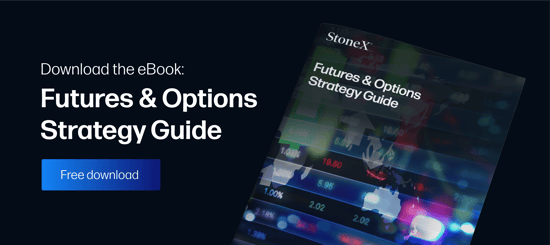According to the Efficient Market Hypothesis (EMH), the financial markets are methodical systems specializing in the valuation of assets. Under EMH, the current price of a security is a reflection of all available and relevant information. Supporters of the theory believe asset pricing is a product of random walk functionality, with the market being “always right.”
EMH has been one of the go-to theories of traditional finance for decades, yet it’s often contested. One notable critic is investing legend Warren Buffett, who has publicly stated he believes there are consistent differences between stock prices and intrinsic values. Buffett is not alone in taking this perspective and it’s certainly difficult to argue with his long-term stock-picking prowess. However, when it comes to derivatives trading, a trader inevitably must wonder whether viable futures market strategies for capitalizing on efficient or inefficient asset pricing exist or whether the markets simply adhere to random walk and the governing tenets of EMH?
Any trades are educational examples only. They do not include commissions and fees.
The Nature of Information
The manner by which information is disseminated to market participants has undergone a quantum leap since the dawn of the internet era. Regardless of how fast or timely a trader receives pricing data and economic news, there are still two critical questions relevant to the flow of information:
- Can market information truly be symmetric? It can be hard to accept the notion that a security’s price represents all relevant data. Is it really possible for every market participant to be crafting trading decisions based upon the exact same information?
- If asymmetric information exists, how can it influence futures pricing? In the event that traders or investors are privy to unique information, price action will undoubtedly be influenced. Are there traders who follow futures market strategies designed to exploit asymmetric information? Do their trading practices undermine the integrity of the markets?
It’s often argued that the digital marketplace has promoted efficiency by increasing the speed of information flow as well as the ease of market entry. Exchange-direct pricing data, scheduled economic releases and breaking news items are now circulated globally at near light-speeds. In addition, the ability to act on information instantly and execute futures market strategies automatically has further strengthened the case in favor of EMH.
Executing Futures Market Strategies: Critiques of EMH
While the technological advances of the past several decades are thought to have increased financial market efficiency, the validity of EMH is still hotly debated. If nothing else, many traders view the issues of contract expiry and data dissemination as challenging the theory’s validity, at least as it pertains to futures.
One common critique of EMH with respect to futures is that it was originally designed with equities investing in mind. While each venue facilitates the trade of assets, futures contracts expire, effectively giving them a finite shelf-life. This fact influences the pricing of derivative products dramatically, creating many potential futures market strategies. In theory, contract expiry and variations between futures and spot market pricing can create arbitrage trading opportunities for some futures traders (specifically hedging practices). The presence of arbitrage can be interpreted as contradictory to the guiding principles of EMH.
In addition to contract expiration and arbitrage opportunities, there have been instances where economic data is not released at the same time to all market participants. Studies from the Wall Street Journal documented cases of “lag time” between the official public release of SEC corporate filings and that to subscribers of the SEC’s news service. The variance in release times was not constant, ranging from seconds to minutes. While somewhat small, the incongruities in the information flow presented traders “in the know” with a significant advantage. Instances such as these are capable of skewing the efficiency of equities indices, commodities and agricultural futures products.
Are the Futures Markets Efficient?
It’s difficult to assert that any system, financial or not, is 100% efficient. Nonetheless, advances in technology have streamlined the dissemination of news and pricing data. The result has been vastly increased market liquidity and participation levels. Both of these elements further the orderly balancing of supply and demand forces, thus preserving the integrity of the marketplace.



